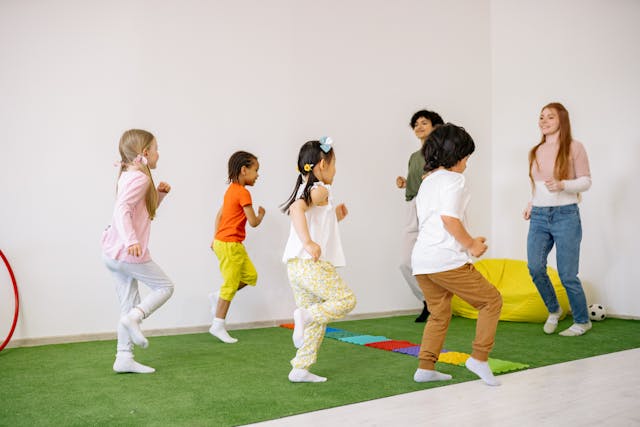Play school is a time for discovery, from learning to take turns to counting to 10. By the time your child finishes pre-K, he or she will have learned a lot. The play school curriculum includes all of the classes and subjects that your child will encounter throughout play school in Noida.
Early childhood development Philosophy and the style of play school you select may have a huge influence on the intellectual, social, physical, and emotional lessons your child learns. Many play schools also teach speech and fine motor abilities.
In rare situations, play schools may be able to assist with toilet training. By the time they start kindergarten, play school children should be able to use longer words and sentences, use scissors, follow directions, and kick a ball.
School for children Sounds and Letters
As part of their education, children at play schools learn the 26 capital letters and a few lowercase letters (lowercase letters are harder to know at this age). First names, as well as other letters and important words such as Mom, Dad, and Love, can be typed out. Play school also establishes a link between letters and sounds, and kids will be familiar with the sounds that letters produce.
Children at the Play School Discover Colors, Shapes, and Objects.
Colors, basic shapes, and body parts will continue to be taught to pre-schoolers.
Math and counting games for kids
The play school curriculum focuses on teaching youngsters how to recognise and pronounce the numerals 0 through 9. The first stage in learning to count is memorising the order of numbers; as they “count” things, youngsters proudly pronounce their remembered numbers aloud. Children will eventually realise that numbers and objects are related. Also look for the best Noida international school.
In Play school, Children Learn to Cut and Draw
Children Learn to Cut and Draw Cuts with scissors should be able to be made by children before they enter kindergarten. Kids will be able to accomplish more than scribbles as they improve at drawing and colouring with their hands. Pencils, paintbrushes, and glue will be taught as well.
The Capability of Playschoolers to Engage in Social Exchanges
Before entering kindergarten, children will learn how to share and collaborate, work together, take turns, participate in group activities, follow simple directions, and communicate their preferences and needs. Children are left off in kindergarten on their own, therefore they must be prepared to protect themselves. They must learn how to solicit help from others.
Social and academic success skills
Play school also teaches children social and intellectual skills. Students will practise skills such as sharing, taking turns, cooperating, going from one activity to the next, and working within classroom standards to learn how to operate in a group. Putting on shoes and jackets on one’s own, eating oneself, and using the restroom on one’s own are skills that children learn in play school that will serve them well in kindergarten.
Curriculum Implementation at the Play School
Most play schools want teachers to adhere to a set of established goals and ideologies. In certain cases, teachers may follow these broad criteria informally. Teachers frequently use specialised lesson plans and rubrics to measure their students’ growth.
Regardless of the ideology adhered to by your play school, the curriculum should stimulate learning while assisting children in reaching the numerous verbal, social, physical, and cognitive goals. A high-quality play and CBSE school, such as (GIIS) Global Indian International School, should have qualified teachers, and the curriculum should be based on the most recent research in early education.










